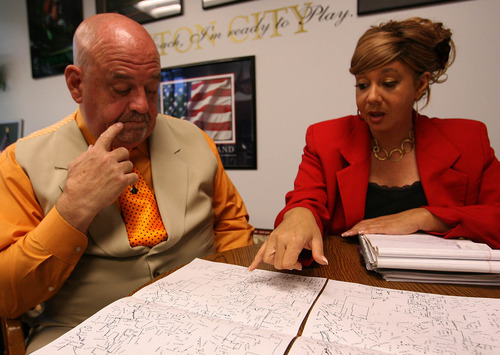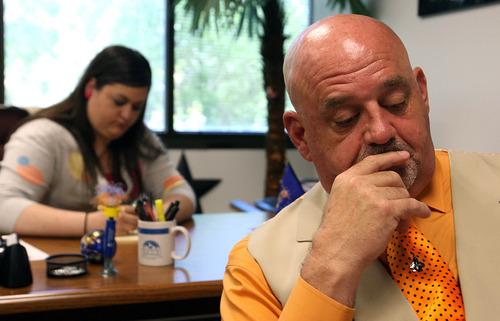This is an archived article that was published on sltrib.com in 2011, and information in the article may be outdated. It is provided only for personal research purposes and may not be reprinted.
Layton • Mayor Steve Curtis came home two weeks before Christmas in 2010 to find a foreclosure notice hanging on his front door.
Without ever being behind on his house payments, the 55-year-old telecommunications worker, after being laid off, had approached his bank earlier in the year for loan-modification help.
"We had been told we were doing everything right,'' he says. "But the right arm wasn't actually telling the left arm what they were doing.''
Elected mayor in 2006 after 10 years on the Layton City Council, Curtis speaks passionately about the growing impact of home losses on families and communities, as well as the prevalence of wrongful foreclosures.
"What he has done in speaking out is exceptional,'' says Marco Fields, a homeowners' advocate and executive director of TEEMS Utah, which seeks to halt preventable foreclosures.
"If this damages me politically, so be it," Curtis says. "My neighborhood matters. When it's happening to the mayor and he's made all his payments and they're still doing it to him … it's unbelievable.''
Since going public, Curtis says he has been approached by many homeowners too embarrassed to speak up about their own foreclosure experiences.
"I have seen where situations like mine have ended marriages or causes suicides,'' Curtis says. "There is a stigma to foreclosures, and I understand that. But there needs to be more public awareness of how common this is.'' —
Foreclosure process
Notice of default • An initial, nonjudicial notice that a homeowner is in trouble, sent out by the mortgage's lien holder when the loan is at least 90 days delinquent, signals that the foreclosure process has begun.
Trustee sale • If the lender and the homeowner can't come to terms, the lender sends a notice of trustee sale, usually affixing it to the door of the home, advertising the legal description of the property being foreclosed upon and setting the date, time and place of the pending sale.
Real-estate owned • If a buyer for a foreclosed home can't be found at auction, the lender takes ownership, often designating a property-management company to maintain the home until it sells.











